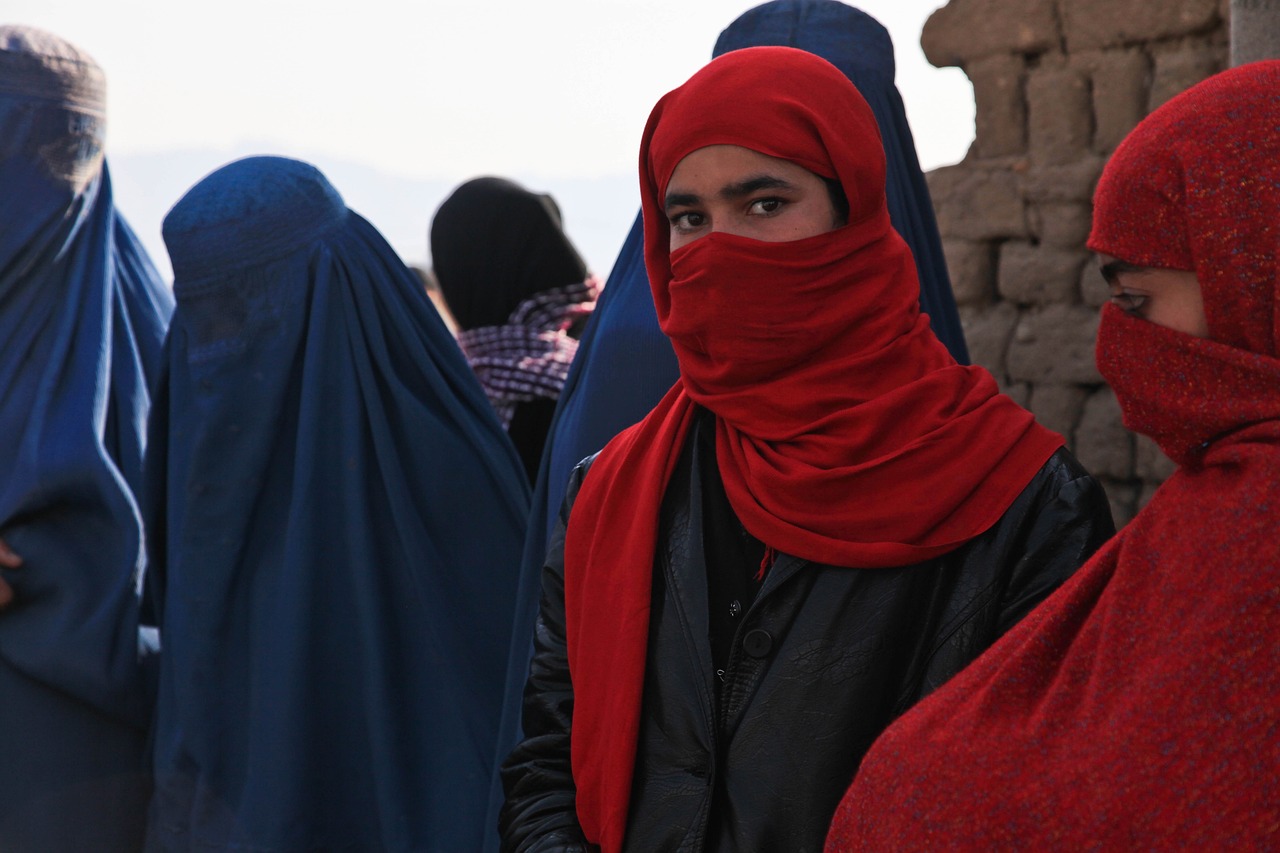Stock photo image by Amber Clay from Pixabay.
By Ayyā Dhammadīpā
When the Taliban returned to power in Afghanistan in August 2021, it seemed that all the world was watching with apprehension and deep concern. We were concerned that Afghans might have to endure worsening economic conditions and rising poverty, an escalation of violence, and a return to a society defined by an oppressive theocracy. All of that has come to pass, and perhaps none suffer more than girls and young women of school age.
The de facto government in Afghanistan, which had already made it illegal for girls to attend middle school and high school in March 2022, declared gyms and parks also off limits to women in November. Ironically, this took place on the same day that the U.N. General Assembly adopted a resolution calling on the Taliban to desist from violating the human rights of Afghan women and girls, and demanding that they lead the country out of the “dire social conditions” that currently prevail.
However, there is one aspect of life in which Afghan women still have agency, and that is university education. The Taliban has wisely opted to allow women to pursue higher education, and to complete their studies if they were already enrolled. Thus, the women continue to attend classes, even as their lives become more and more circumscribed by limitations on their movements and activities.
To support the women who are taking up this precious opportunity, BGR has partnered with CARE to contribute funding to the University Scholarship Initiative for a second year. CARE has a significant and ongoing presence in Khost province, the area of Afghanistan where the university women’s initiative is operating, and CARE’s activities include projects providing emergency relief, education, and livelihood support.
The University Scholarship Initiative began in 2012 to provide next steps for girls who had participated in CARE’s Lower Secondary Community-based Education project, which enabled girls to pursue their middle and high school education with trained teachers in private homes. One of the teachers both trained and employed by CARE in the community-based program describes her motivation this way:
Girls … should be able to earn their own income. Knowledge is power. If they have knowledge, they will be strong people and help other people–they can reduce the misery of others. There would be brightness in the community.
CARE’s University Scholarship Initiative is assisting young women so that they can graduate with university and technical degrees. This initiative has assisted hundreds of young women, and recipients are chosen from the community because of their great need. The Initiative selects recipients using four main criteria: academic performance; financial need; orphaned students; and students with special needs.
This project currently provides funds for the college educations of 124 Afghan women, and an additional 71 young women are new to the program this year. Funding from Buddhist Global Relief is supporting 38 of these courageous young women. Each of them receives support for education-related costs, including transportation, textbooks, and university fees. They are receiving education in their chosen fields, which include medicine, nursing, midwifery, stomatology (oral medicine), and law. And they are succeeding.
CARE’s University Scholarship Initiative has enabled hundreds of women to graduate, including 12 who graduated this past year. Graduates are finding work that pays more than they could possibly hope to obtain without a degree. Working in their respective fields, graduates of the Initiative not only contribute to the well-being of their families and Afghan society, but also become beacons of hope for girls and women in a country where hope is hard to come by. Even as Afghanistan is hit with waves of rising food insecurity, drought, and economic contraction, these young women are improving their lives and the lives of those around them.
Our partner CARE writes:
Shifts in traditional social and gender norms are likely to be the strongest legacy of BGR’s investment in scholarships. Sustainable changes are already visible in the consistent demand of communities for girls’ education, as demonstrated by high attendance rates, graduation rates, and success finding jobs. These results are a tangible demonstration of the broader social change taking place in targeted villages, where girls’ voices and contributions are valued, sought, and invested in.
However, we at BGR and the staff and volunteers of CARE recognize that this project is not without risk. In recognition of this risk, in this blog post we are not sharing images of the women or the locations of their schools (the image above is a stock photo). There are people in Afghanistan who strongly, sometimes violently, oppose women’s education, and we are doing what we can to protect these students from any reprisals against them. It takes a tremendous amount of courage for these women simply to go about quietly attending classes, studying, and learning. For women who live under oppression, quiet strength is the most powerful strength of all. In fact, history has shown that quiet strength can move entire nations and can change millions of lives for the better.
CARE and BGR continue to provide funding for the women so that they can pursue their college degrees. We, at BGR, feel honored to support these young women in their studies, and we look forward to a long, fruitful relationship with them through CARE. We admire the women’s quiet strength, and we want them to know that we share their hopes for a future in which Afghan girls and women can participate fully in an educated Afghan society and in the world.
Ayyā Dhammadīpā is a BGR Board member and the founder of the Dassanāya Buddhist Community in Alexandria, Virginia. She is a fully ordained bhikkhuni in the Theravāda tradition and a Dharma Heir in Soto Zen. In addition to English, Ayyā teaches in Spanish, an expression of her Latin heritage.





